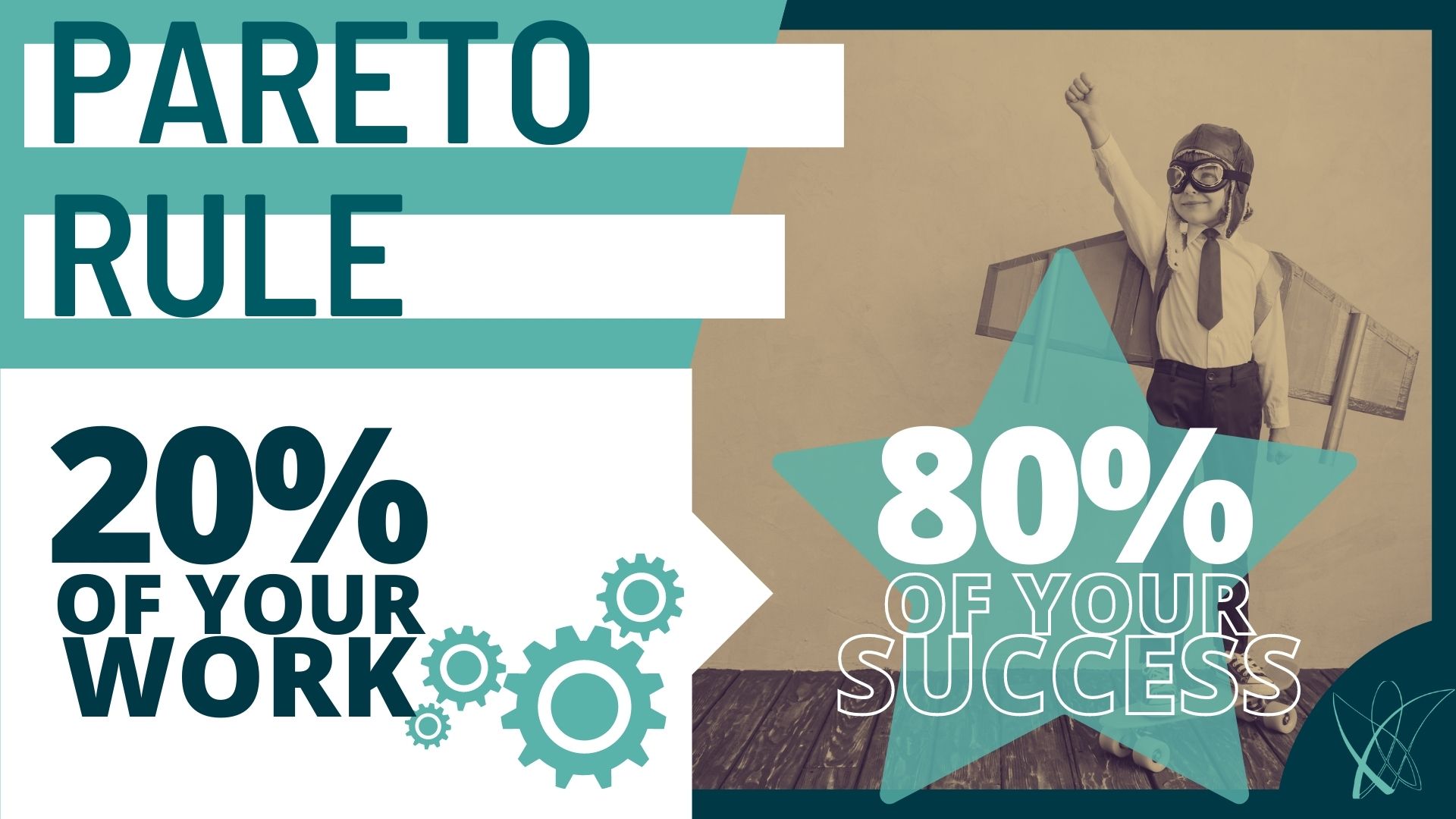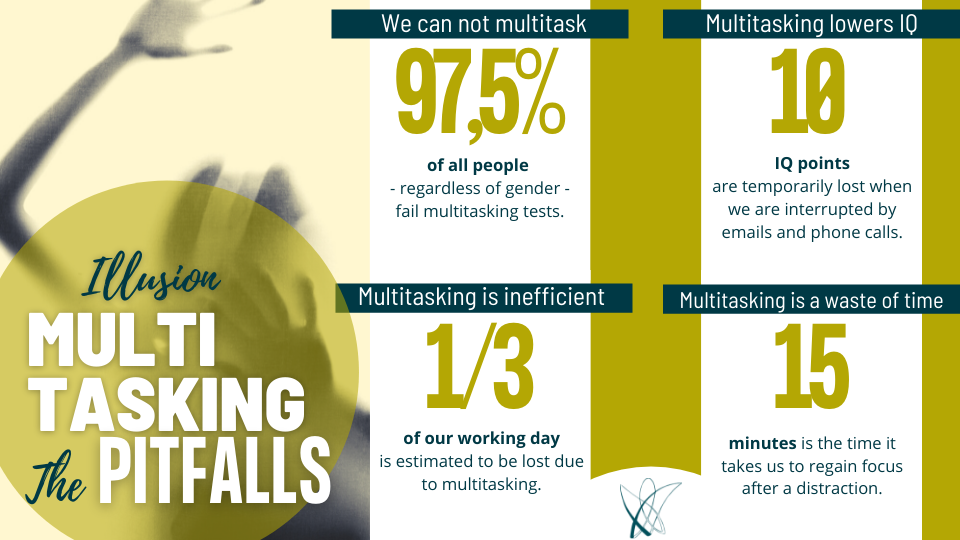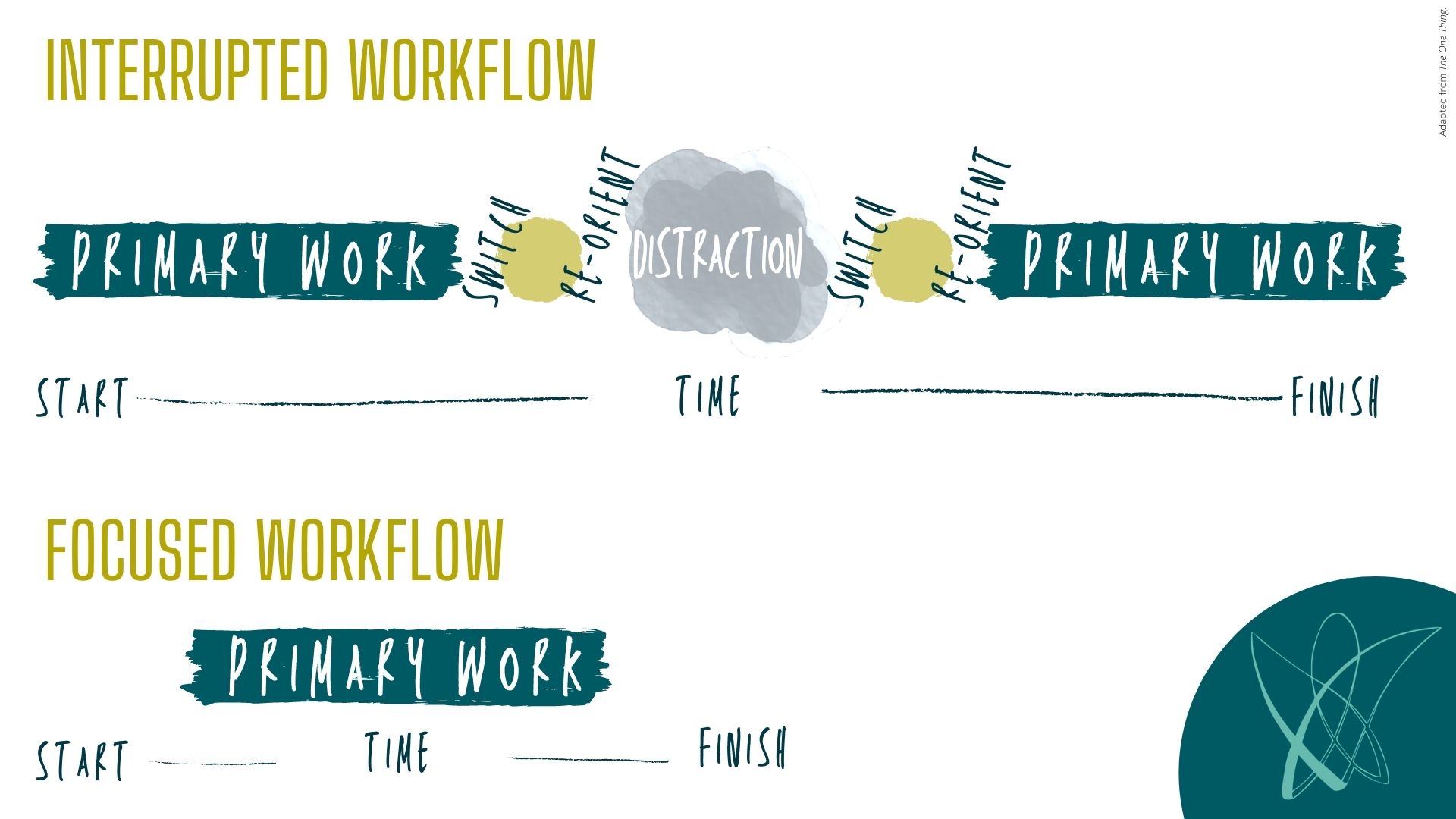How the myth of multitasking robs us of time and energy every day
Shortened Version

In Michael Ende’s book, Momo, there exists the fantastical characters The Grey Gentlemen. They are tasked with stealing people’s time, slowly draining them of life. We’d like to steal that analogy for multitasking. Multitasking slowly robs us of our time, wasting away what might have been a productive day. In this article, we hope to finally put to rest the myth of multitasking. The truth is people are simply not capable of focusing on more than one task at a time.
Contrary to some expectations, the ability to multitask has very little to do with our gender. The human brain is simply not equipped for it. It has always been said that women are born with the ability to do countless things at the same time. Like a Hindu goddess with a hundred arms – they write emails, make phone calls, rock their children to sleep, and prepare lunch with a wooden spoon. However, this belief in the multitasking-woman harms us more than it helps us, because it puts women under pressure to perform the impossible. For people of all genders, multitasking does not lead to the desired goal. It doesn’t save time, nor is it effective. On the contrary, it costs us time every day, causing unnecessary stress and reducing our thinking power and mental health.
Do you see yourself as living proof of successful multitasking?
Then try this: Memorize the following numbers – 27, 4, 13, and 1 – and simultaneously write an email to a business partner. You will most likely have one of two problems: either you don’t manage to write the email because your mind is stuck on memorizing the numbers or you forget the numbers but write an okay email. If you found yourself achieving one of these results, don’t worry, you’re in good company. Different multitasking tests conducted on a host of different individuals have all come to the same conclusion: multitasking doesn’t work.
Studies by psychologist David Strayer concluded that a total of 97.5 percent of people fail multitasking tests. Furthermore, they found that attempts to improve one’s multi-tasking ability have very little benefit. Further research by Stanford University even found that chronic multitaskers consistently achieve worse scores on aptitude tests than the occasional multitasker.

The reason for this: our short-term memory can only store between five and nine things at any given time. When we try to accomplish two different jobs at the same time, both of which require a certain level of concentration, we fail because our brain can’t concurrently store various different and complex sources of information into short-term memory without error. And if things are not stored in the short-term memory, they cannot be transferred to the long-term memory and are therefore not re-accessible at a later date.
The idea of multitasking often goes hand-in-hand with the mistaken belief that all tasks are equally important and therefore ought to be completed equally quickly. We try to pack more into the day than is possible instead of focusing on what is most important. Switching back and forth between tasks, our brain subconsciously chooses which information to process and which to ignore. If we are listening to something, our visual cortex will be less active. So if you’re on the phone and working on your computer at the same time, you’ll inevitably absorb less of what’s being said in the conversation.
So the fact is we suffer from a multitasking paradox: Instead of productivity, multitasking only creates an illusion of productivity.
This graphic above is an impressive illustration of how much time we lose through interrupted and therefore unfocused work. Researchers estimate that we lose around one third of our working day by switching between different tasks in a semifocused manner. Calculated over the course of a workweek, that’s one and a half work days that we could have used productively if a focused methodology was applied.
6 steps to successful single-tasking
We won’t be able to reverse technological advances. But we can adopt certain strategies to help us avoid losing focus all the time. Here are six steps to improving your ability to single-task:

Step 1: Create calm before the storm
Take time for silence before each task. It doesn’t have to be long. One to three minutes is quite enough. And by silence, I mean complete stillness. Meditate on what you wish to engage with and reflect on potential distractions. That’s how we really focus in on the subject of our work. This is how we show appreciation for the task and the here-and-now. Thus, every one of my coaching sessions starts with a ritual of silence.
Step 2: Make a decision about what is really important
The most important skill for staying efficient and productive is prioritizing tasks. This goes hand in hand with saying goodbye to things that cost us too much time and energy while providing little benefit. Use the Pareto Rule, which I hold in high regard. According to this rule, 20% of your activities result in 80% of your success, just as 20% of your customers result in 80% of your revenue. So be selective in your choice of actions, but consistent in your implementation.


Step 3: Do the most important thing first
You probably already know this, but we often like to put off things that are most important because they also cost us the most energy and time. Instead, we deal with tasks that are
easy to do, that don’t require much effort (checking emails, responding to texts, reading the news). But we must break away from this cycle. Always do the most important thing first. Not what comes easiest. Create a focused time slot – for example in the morning from 10-12 o’clock – in which you always do the most important task of the day. This creates immense relief and the rest of the day will flow without the nagging of a guilty conscience.

Step 4: Say NO and write a Don’t Do list
One of my favorite beliefs is: every no to the world is a yes to myself. This simple motto is a powerful prioritization tool. Only when we manage to say no to things that are less important to us can we fully focus on what really matters. Write a daily Don’t Do List with all the things you commit to not invest time into. In the evening, check off what you were
able to avoid doing and congratulate yourself on creating boundaries with your time.

Step 5: Schedule daily alone time
Block out some time for yourself each day to set your priorities, to meditate on your goals, and plan out how to make them happen. In this way, you can reset your focus and allocate your skills accordingly. We are often surrounded by people all day long resulting in a never-ending stream of conversations and stimuli that distracts us from our real work. If
we never have time to ourselves, it can be difficult to filter out irrelevant information and focus on what is really important. Such distractions in turn lead us to unnecessary multitasking and wasted time. This applies to both our personal and professional lives. Which is why it’s important to schedule time for ourselves on a regular basis.

Step 6: Tighten up your time, increase urgency, enjoy your impatience
We should take advantage of our inherent impatience when working, says author and leadership expert Peter Bregman. “Create unrealistically short deadlines,” Bregman writes for Harvard Business Review. “Cut all your meetings in half. Give yourself one-third of the time you think you need to accomplish something.” Because, the more time we have, the
more opportunity we have to put things off. We all know that when we’re pressed for time, we can activate almost unbelievable potential. Use this power. We also know by now that our attention drops after an average of 18 minutes. Accordingly, it also makes sense to move on to a new task after your attention begins to wane and to give the next task our full concentration.
So let’s finally bury the myth about multitasking and start to become wonderfully efficient single-taskers. Because in the desperate attempt to do a thousand things, with a hundred arms, we will only trip over our excessive limbs and fail to properly exploit our full potential. The secret of our success lies in prioritizing and focusing. Everything else only robs us of our time.





